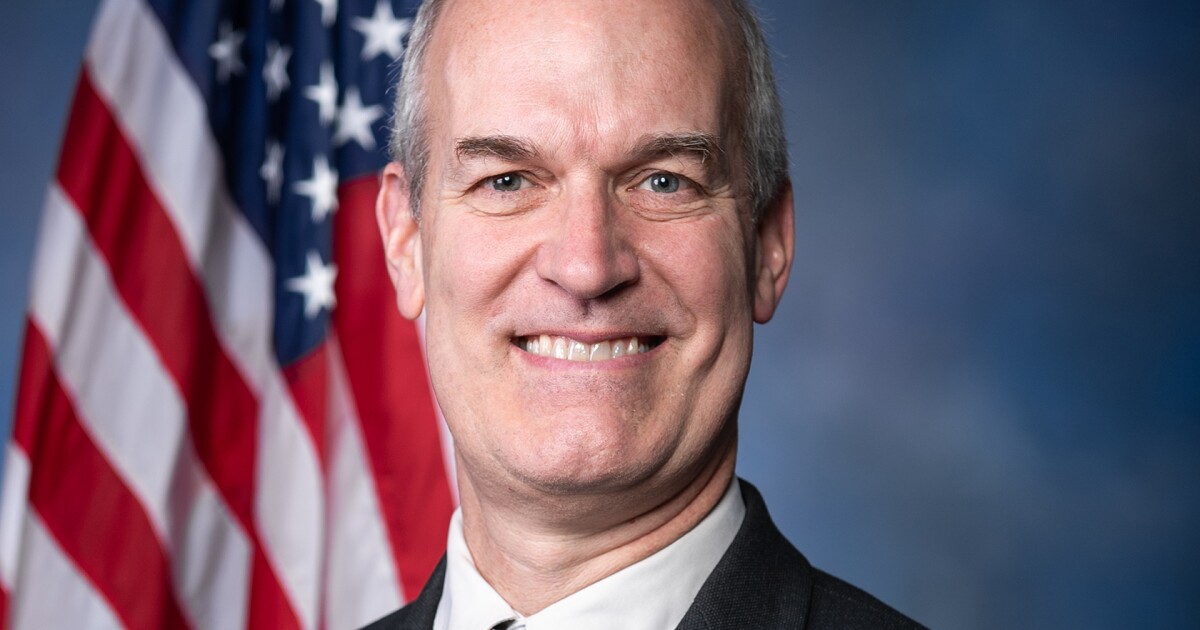Lawmakers already working on BIL reauthorization
4 min read

As the chance to tap federal dollars through the Bipartisan Infrastructure Law inches into the final two years of the program, a growing group of policy influencers and lawmakers are moving towards a reauthorization.
“We’re having hearings right now on reauthorization,” said Rep. Rick Larsen D- Wash. “When we’re doing these hearings, we’re talking about what can we do next? How do we need to do it? What needs to be different in order to get that done?”
The comments came during the American Public Transportation Association’s Legislative Conference held this week in Washington D.C. Larsen is the ranking Democrat on the House Transportation & Infrastructure Committee and his comments echo similar remarks he made at an industry event in
U.S. House Office of Photography
Despite the inertia and distractions afflicting other parts of Congress, Larsen extolled the bipartisan virtues of the T&I Committee.
“Sam Graves, who is the chair of the committee is equally committed and to us being the committee that gets work done,” he said. “If you don’t want to get work done, just down the hall from us is the judiciary committee and oversight. That’s where the cameras are.”
T&I isn’t totally drama-free. Rep. Rick Crawford, R-Ark., announced in
To increase the odds of a BIL reauthorization lawmakers are trying to push success stories into the headlines. Larsen, whose district stretches from the Canadian border to north of Seattle touted the recent success of a light rail project.
“We’ve seen the benefits of federal investment,” he said. “Sound Transit, which is a regional transit agency, received $1.1 billion to build helped build the Lynwood Link, which will provide a new light rail service to my district.”
According to the National League of Cities’ BIL Funding
Rep. Earl Blumenauer, D- Ore., who sits on the House Ways and Means Committee explored paying for infrastructure improvements without accessing federal grants, which usually require local matching funds. Oregon has been paving the way in rejiggering highway usage fees to accommodate electric vehicles that don’t pay into the gas tax revenue stream.
“As many of you know I’ve been working on a user fee,” said Blumenauer. “It’s something we’ve been experimenting on in Oregon for a dozen years and we were able to get pilot projects around the country. When people actually see how it works, it’s not quite so scary.”
The federal gas tax is currently 18.4 cents a gallon and hasn’t been changed since 1993.
According to the U.S. Energy Information Administration EVs and hybrid vehicles accounted for 16.3% of the 2023 total sales of cars and light duty trucks. A year earlier they accounted for 12.9% of total sales.
Tinkering with the gas tax at the state level is happening in
Blumenauer, who is retiring from Congress at the end of his term in January, is also championing a change in how airports can collect fees used to upgrade infrastructure.
“Two little things I’m working on before I leave, one is having passenger facility charges that can be set by the local airport authority,” he said. “There is no reason that local airport authorities should not be able to set passenger facility charges on the traveling public for things that they need that will actually help the airlines do their job better.”
The congressman would also like to see unused parking spaces being put to better use. His views on the PFC’s resonates with airport authorities who regularly
Even though the BIL is bipartisan by name and passage many Republican congressional members voted against it and are now taking heat for showing up at the celebrations of finished projects.
“Some will mock my well-intentioned colleagues who voted ‘no’ on the bill and then show up at the ribbon cuttings and take credit for the money,” said Larsen. “If that local mayor can help me the next time we write this bill, I’ll remind that person how good they felt at that ribbon cutting and translate that into a yes vote. I’m okay with that.”







